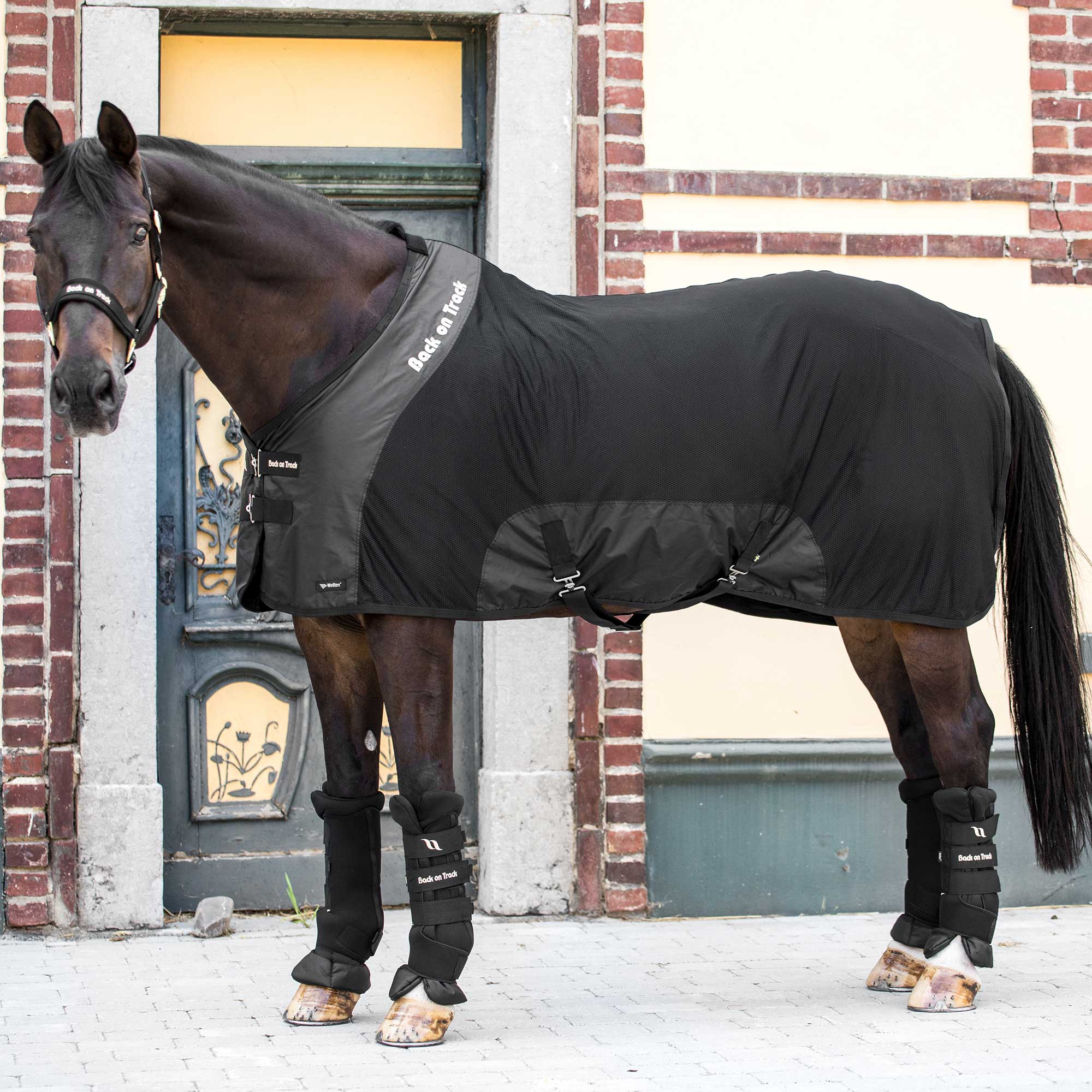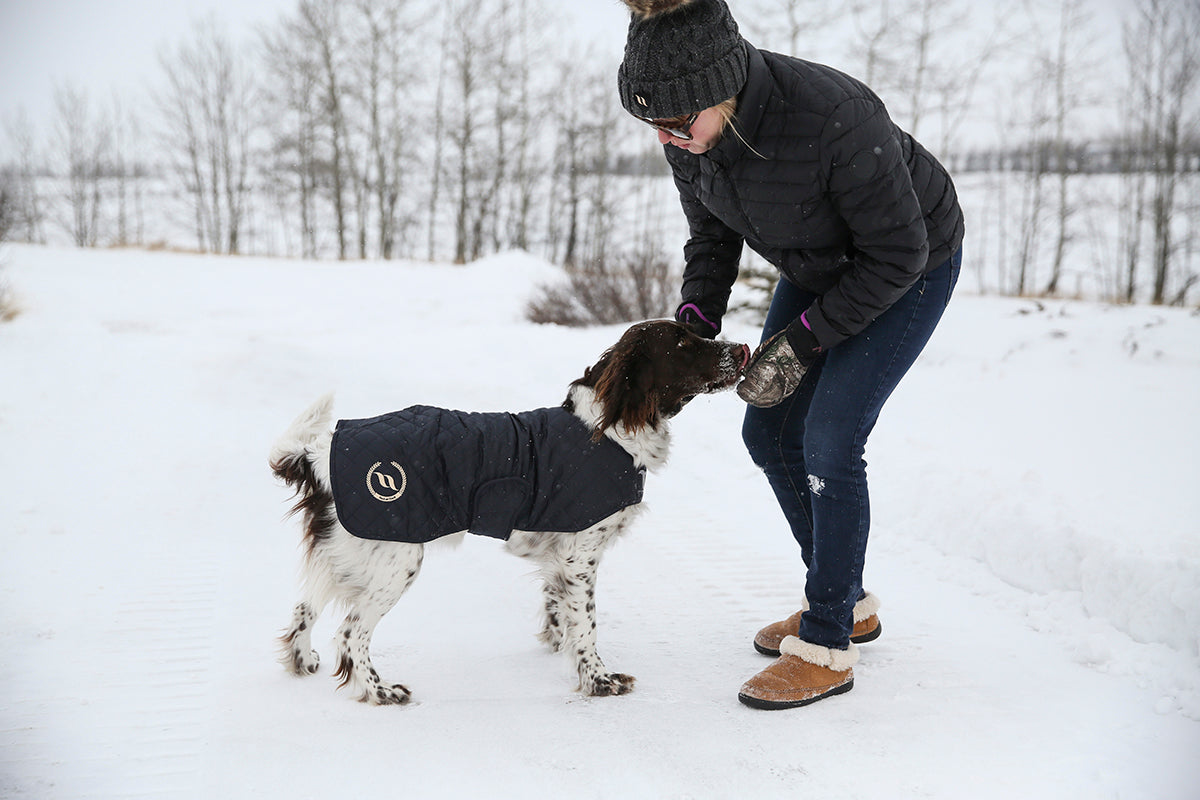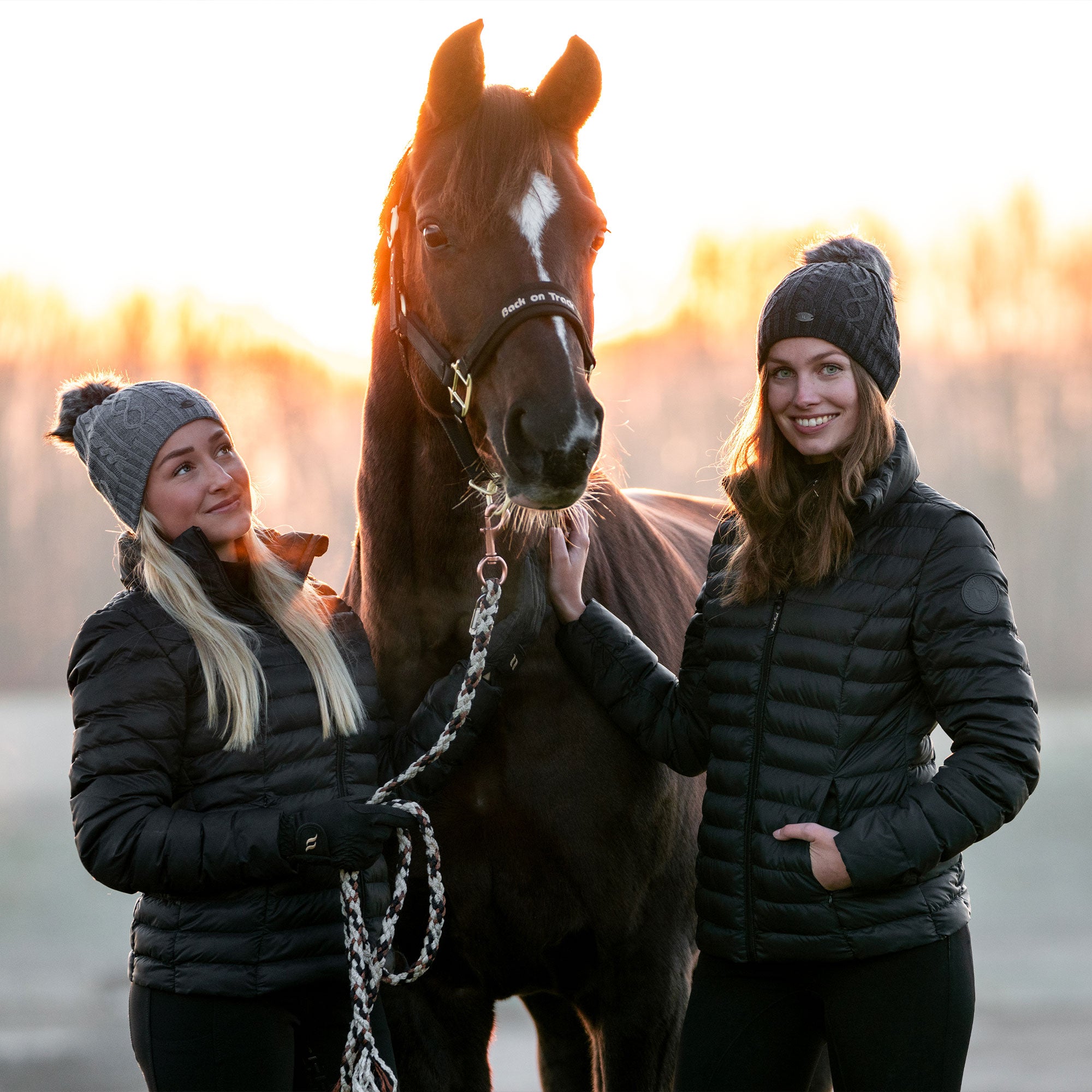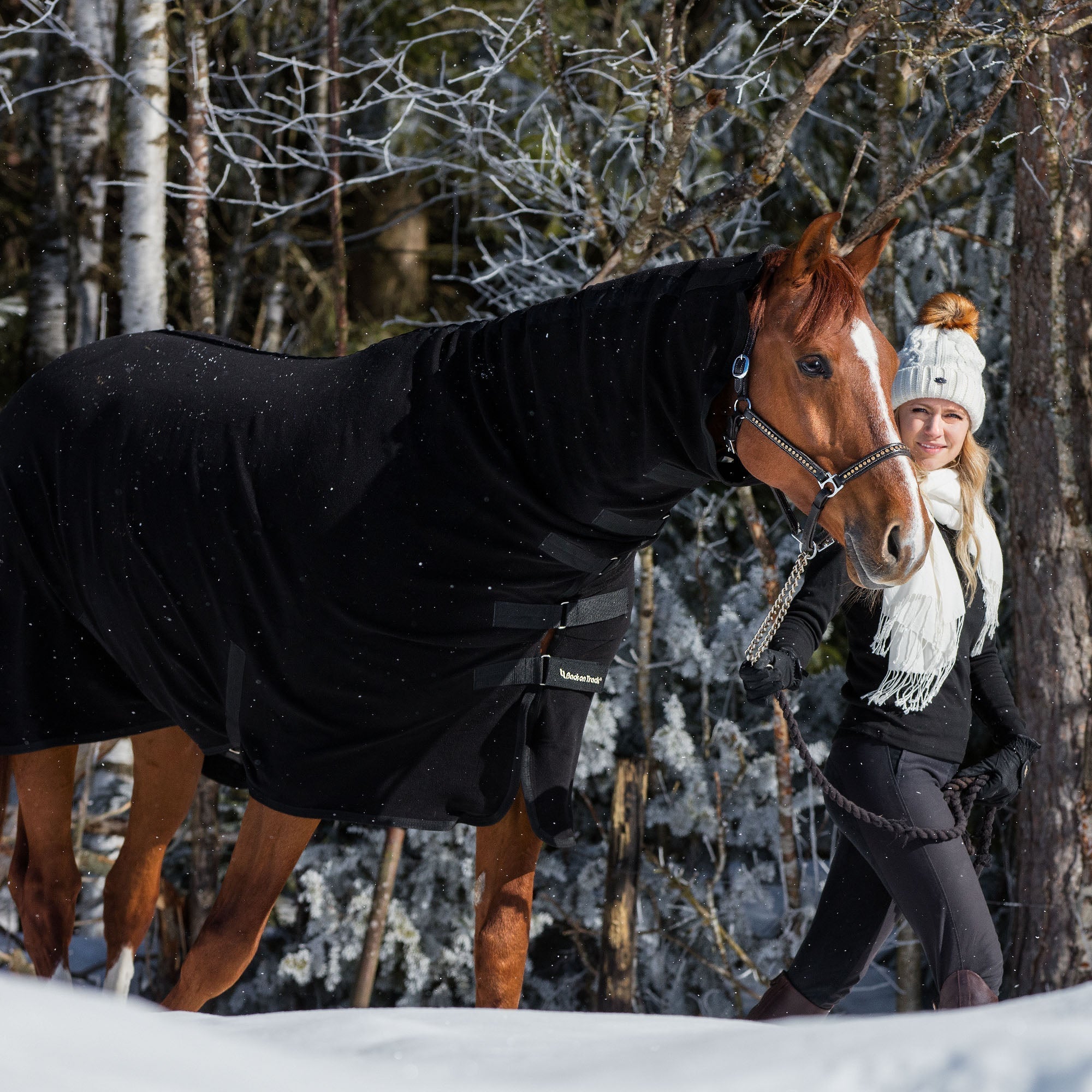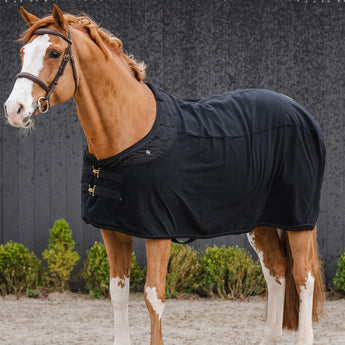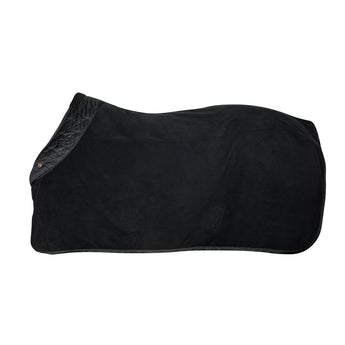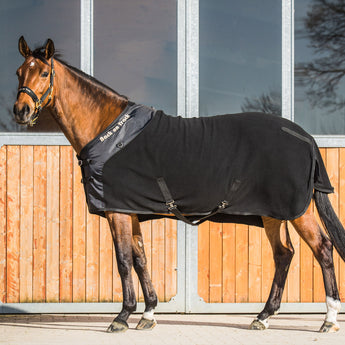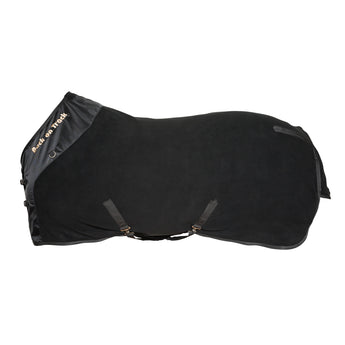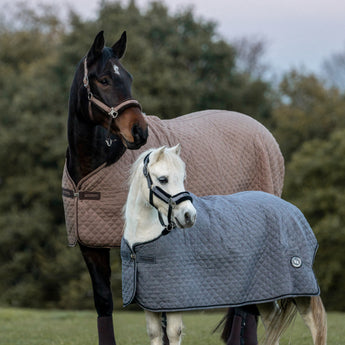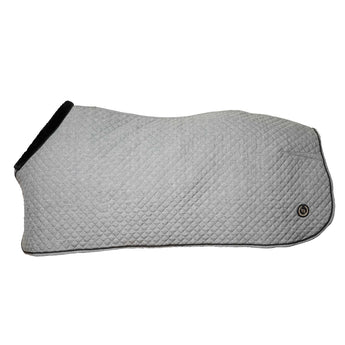Horse care is more challenging in the winter, thanks to frozen water buckets, snowy paddocks, blanket changes, and other inconveniences for horse owners. But with proper management, most horses can thrive in cold weather.
Here's everything owners need to know about how to care for their horses during the winter months.
Winter Weather
Horses acclimatized to cold temperatures often prefer the cooler winter months to the heat of summer. Many grow a thick winter coat to help them stay warm, and they are happy to be outdoors if they can access appropriate shelter, food, and water.
If your horse isn't acclimatized to cold temperatures, he will likely need additional support to stay comfortable during the winter. Performance horses with clipped coats and senior horses may also need extra care.
Water Intake
Horses need to drink more water during the winter. Dried winter feedstuffs have less moisture content than summer pastures, increasing the risk of impaction colic during winter if your horse is dehydrated.
Always ensure your horse has access to clean, fresh water. Research shows horses prefer water between 45- and 65-degrees F. If temperatures fall below freezing, consider using a safe water heater. Feeding loose salt can also encourage hydration.
Nutrition
Horses rely on energy from their food to keep their bodies warm. As the temperature decreases, horses need additional energy to maintain their condition and body temperature. Forage is the best source of additional dietary energy during the winter.
Some owners believe they need to feed more grain in the winter, but grain digestion doesn't produce as much heat as forage fermentation. Feeding more forage increases fermentation and helps the horse stay warm.
Heavy coats can hide weight loss during the winter, so monitor your horse's body condition closely. Winter weight loss could indicate your horse needs more energy from their diet, but you should always consult your veterinarian about weight concerns.
Exercise
Colder weather and shorter days can lead to less time spent in the saddle for owners and less exercise for horses. However, increased confinement and limited exercise can negatively affect your horse's physical and mental health.
Continue daily turnout during the winter and exercise your horse as often as possible. Avoid working in icy conditions and deep snow to reduce the risk of injury and remember to properly warm up and cool down.
Use a fleece cooler to safely dry sweaty horses after exercise in cold weather and keep them warm.
Hoof Care
While hooves may grow slower in the winter, horses still need regular farrier care to maintain hoof health. Snowy conditions can cause ice or snow to pack into your horse's hoof, so pick your horse's hooves daily.
Barefoot horses have better traction in the snow and ice than shod horses. If your horse wears shoes, talk to your farrier about adding snow pads and be careful to prevent slipping during the winter.
Shelter
Horses need access to shelter at all times. While horses don't have to stay indoors during the winter, ensure your horse always has free access to a stable or shed during turnout. After snowstorms, clear paths for your horse to reach shelter, food, and water.
Exposure to wind and moisture can compromise your horse's ability to maintain his body temperature in the colder months. While your horse may rarely use the shelter on a sunny day, studies found horses use shelters for most of the day in stormy and windy conditions.
Blanketing
A healthy horse with a full winter coat may not need a blanket. A dry, thick winter hair coat insulates your horse by trapping warm air against his skin. However, even horses with a full winter coat may need a waterproof turnout blanket in wet conditions.
Blanketing may benefit your horse if:
- Temperatures or wind chills drop to extreme lows
- There is a chance of rain, snow, or sleet
- Your horse is clipped
- Your horse is young or old
- Your horse isn't acclimated to the cold
- Your horse has poor body condition
If you choose to blanket your horse, use the correct style and weight blanket for the current conditions. Frequent blanket changes will help prevent overheating or under blanketing.
Back on Track Blanket Guide
Read Back on Track's Comprehensive Horse Blanketing Guide for everything you need to know about choosing the best horse blanket and when to blanket your horse.
All Back on Track horse blankets and sheets feature Welltex® technology, which reflects body heat as soothing far-infrared warmth to stimulate circulation and support muscle health. These effects can benefit all horses and promote wellness and mobility during the cold winter months.
Learn More from Back on Track
Follow Back on Track on Facebook and Instagram for more tips and insights.
Sign up for the Back on Track Bulletin to never miss a new blog.
References
- Mejdell, C. et al. Caring for the horse in a cold climate—Reviewing principles for thermoregulation and horse preferences. Appl Anim Behav Sci. 2020.
- Hammer, C. et al. Effect of Different Blanket Weights on Surface Temperature of Horses in Cold Climates. J Equine Vet Sci. 2020.
- Jorgensen, G. et al. Preference for shelter and additional heat in horses exposed to Nordic winter conditions. Equine Vet J. 2015.

